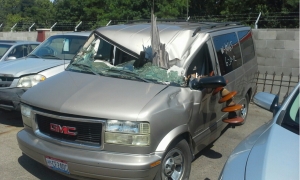 We’ve been talking about subrogation, and here is more on subrogation to help you better understand how insurance companies try to recover claims from one insurance company to another. When accidents happen, the insurance company is on the list of who gets called from the scene of the accident.
We’ve been talking about subrogation, and here is more on subrogation to help you better understand how insurance companies try to recover claims from one insurance company to another. When accidents happen, the insurance company is on the list of who gets called from the scene of the accident.
How Does Subrogation Recovery Happen?
1. If both people involved in the incident were insured, the insurance companies may have agreed to resolve subrogation disputes by intercompany arbitration. This is an informal process that does not involve a lawsuit. However, the insurance company trying to recover what it has paid still has to prove that the other party was at fault. In collision claims, negligence (carelessness) is a common theory. The insurance company seeking recovery also has to prove the reasonableness of the amount that it paid.
2. If the at-fault party was not insured, he/she/it might get sued by the insurance company to recover the amount paid. The at-fault party can defend the case, claiming that he/she/it was not responsible or only partially responsible for the incident. He/she/it can also defend on the issue of damages, claiming that too much was paid.
3. If the person sued is found responsible a judgment will probably be entered. A judgment is a formal court finding that an amount of money is owed. In most states, if a judgment is entered resulting from an automobile collision and it remains unpaid for a period of time provided by law (often 30 days), the driver’s license and car registration of the person against whom the judgment is entered may be suspended. That is often a tool used to get the subrogation claim paid.
In Subrogation, Do Not Do This
Automobile insurance policies, and most other kinds pf property insurance policies expressly reserve to the insurer the right to pursue subrogation. Even if they didn’t it is generally understood as a matter of law that it is. More importantly, the insurance policy will require you to cooperate with the insurer in its pursuit of subrogation. This means:
- You shouldn’t give any written or verbal statements to the other party, his/her/its insurance company, their insurance adjuster, or lawyers without the express permission of your insurer.
- You shouldn’t sign any releases in favor of the other party or his/her/its insurer without the express permission of your insurer. Doing so would negate your insurer’s right to pursue subrogation because those rights derive from your right to claim damages from the at-fault party.
- You shouldn’t accept any money from the other party or from his/her/its insurer as that could be characterized as a settlement that undermines your insurer’s right of subrogation.
- You shouldn’t file a lawsuit against the other party for damages from the same incident that might not have been covered, without the permission of your insurance company. Not to get too technical, but this could be considered as “splitting a cause of action” and cause trouble for the insurer’s subrogation claim. This is a technical point of law, so don’t do it without first coordinating with your insurer.
In an auto collision, it is important to work with your claims adjuster. Hopefully, you will be in good care and he/she will be patient with you to help explain the situation. If you think you need an attorney to help manage the event, that is your decision. The Insurance Problem Solver does not deliver legal advice nor does it practice law. I am a retired insurance attorney, and that’s why I know so much about insurance.
